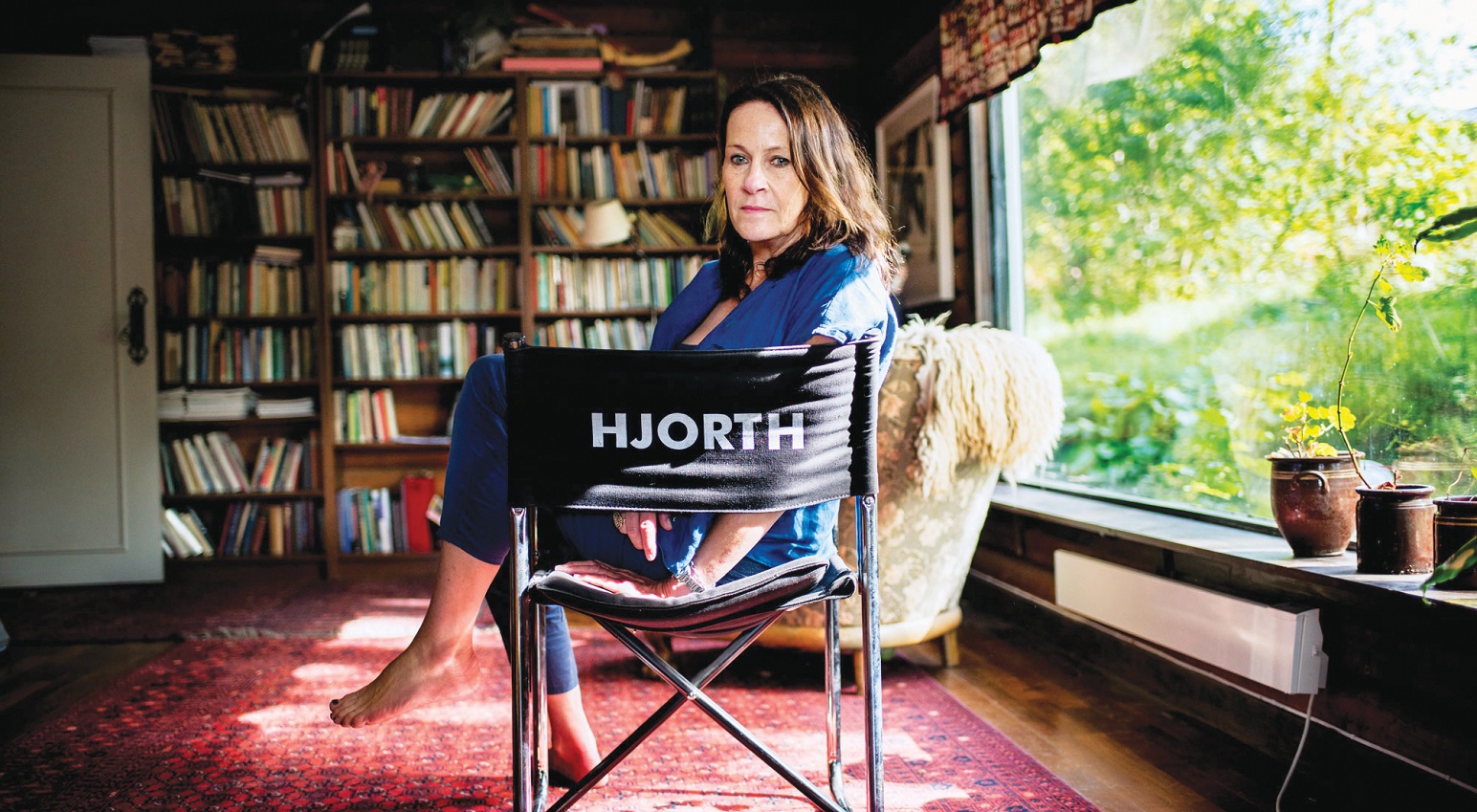
When the Norwegian author Vigdis Hjorth published her novel Will and Testament in 2016 it became a sensation. It was heralded as a great literary achievement, the latest of many in a long and celebrated career. It was also consumed salaciously as a thinly veiled account of reality. Its events were traced over those that took place in her own life. Family members expressed outrage at their perceived inclusion in what Hjorth insisted was a work of fiction. Most dramatically, her sister Helga Hjorth, a lawyer, wrote a retaliatory novel titled Free Will, which retold the story of Will and Testament with that book’s account of truth and lies diametrically reversed. Earlier this year Hjorth’s mother threatened to sue a theatre staging an adaptation of the novel.
The other Norwegian literary scandal of recent years, that of Karl Ove Knausgård’s My Struggle series, has in common with Hjorth the familial backlash and public admonishment. Knausgård’s ex-wife, the journalist Tonje Aursland, produced a radio documentary confronting him in 2010 named Tonje’s Version. His uncle said that the portrayal of his brother, and Knausgård’s father, as a destitute drunkard was akin to “verbal rape”. But where Knausgård appeared to be genuinely surprised by the scale of the backlash and the anger of those named, Hjorth’s reaction has seemed to be more sanguine. The content of Will and Testament, now published in translation by Verso’s new fiction imprint, makes sense of that inevitability.
In many ways it’s a pity to speak about a novel as good as this one in relation to how factually true or not it may be, but in the case of Will and Testament the ensuing real-world drama is inextricably bound up in the concerns of the work, which have to do with memory and denial and shattered loyalties. Bergljot, the book’s narrator, is an editor, divorced, the mother of three adult children. She has long since been estranged from her parents and siblings, but is reluctantly drawn back to them when a dispute breaks out about the inheritance of summer houses. She wishes to make no claim upon the properties, but with battling relatives imploring her to take their side and settle the dispute, is forced to engage once more with a family she has cut out for her own survival and sanity. The abuse, ignored allegations and cloying manipulation of 23 years that broke them apart come to the fore, and this time must be dealt with for good.
Hjorth also has in common with Knausgård a certain dryness of style. Knausgård’s stoicism is most effective when used to highlight the absurdity of his inner life – one passage in particular has always stuck with me, about refusing to use a wheelie suitcase as it is intended to be used, for fear that it would make him look foolish. It is amazingly acute on the comedy of masculinity. Hjorth’s precision, on the other hand, becomes a quietly devastating mimicry of the effects of trauma, and of ambiguous and conflicting memories, on a human being.
The particulars of Bergljot’s experiences are revealed with immaculate restraint, earning Hjorth comparisons with Ibsen, but as she goes further into the past, that restraint transcends its beauty and becomes profoundly sad, the relationship of style to the pain it is describing growing more disturbing. The tension and reserve begin to seem not just a formal choice but a necessary way of being that has been bred in the narrator by the physiological imprint of trauma.
The insistent clarity, and the avoidance of gratuitous emotion – something like a gorgeously written police report at times – show the indiscriminate self-awareness one witnesses in traumatised adults. The formative experience of having one’s lived reality denied and challenged can lead later to constant and frantic anticipation of the ways one may be discredited, disbelieved, harmed all over again. Reluctance in describing pain comes not out of bravado but an instinctive caution. How much are you allowed to feel? What will be accepted by those receiving your account?
Part of what makes this such an extraordinary book is Bergljot’s awareness of the competing pain that surrounds her, including that of the people who caused her own pain. Her suffering does nothing to negate theirs, and doesn’t remove her ability to witness it. After forcing her mother to confront the past, she is haunted by her expression: “Mum’s terrified face… like a cornered animal that knows it will be tortured and killed, and a wave of pain washed over me, the agony of compassion, poor Mum.” Her friend Bo tells her that the problem isn’t when you sympathise with one party in a conflict, but when you sympathise with both. The role of victim becomes meaningless, distasteful even. The pursuit of vengeance comes to appear futile and pathetic.
That she can see the suffering of her tormentors does nothing to heal Bergljot. No such easy redemption is found here. The existence of sympathy can’t undo what has been done. What she is moving towards is not resolution, which she knows is not possible, but finally to be acknowledged. When her daughter Tale writes a letter to the family that outlines her mother’s suffering and their shameful ignorance of it, something changes in Bergljot: “I wept. It was terrible to see it, but it felt so good to be seen.”
Will and Testament
Vigdis Hjorth; translated by Charlotte Barslund
Verso Fiction, 336pp, £10.99
This article appears in the 11 Sep 2019 issue of the New Statesman, Cameron’s legacy of chaos






